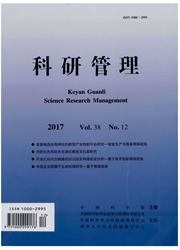

 中文摘要:
中文摘要:
在由一个制造商和一个零售商组成的制造商回收再制造闭环供应链中,考虑系统成员问存在Nash均衡博弈、制造商领导的Stackelberg博弈和零售商领导的Stackelberg博弈等权利关系,研究并比较三种分散式决策闭环供应链的定价决策及利润问题。研究结论表明:在制造商领导的市场中,零售商的零售价与获得产品的批发价呈正相关关系;在零售商领导的市场中,制造商的批发价和回收率均与零售商的零售价呈负相关关系;回收产品的潜在期望收益是回收行为的驱动因素;在分散式决策闭环供应链中,市场无领导者时,消费者获得的收益最多,闭环供应链也越有利于降低资源消耗,且制造商和零售商均有动机成为领导者,其拥有的权利越大,议价能力会越强,获得的利润就会越多;与分散式决策相比,集中式决策闭环供应链的零售价最低,回收率和渠道总利润最高。最后,我们设计了可协调三种分散式决策闭环供应链的收益共享契约。
 英文摘要:
英文摘要:
In a manufacturers' collecting and remanufacturing closed - loop supply chain (CLSC) which is composed of one manufacturer and one retailer, in consideration of the Nash equilibrium game existing among the system members, the Stackelberg game led by the manufacturers, the Stackelberg game led by the retailers and other right relations, this paper studies and com- pares the pricing decisions and profits problem of the three decentralized decision - making CLSC models. The research results indicate that: in the markets led by manufacturers, the retail price of the retailers has a positive correlation with the wholesale price of the products obtained; in the markets led by the retailers, the manufacturers' wholesale price and return rate have a neg- ative correlation with the retail price of the retailers ; the potential expected income of the recovered products is the driving factor for the recovery activities. In the decentralized decision - making CLSC, when there is no leader in the market, the consumers will get most profit and the CLSC is more favorable to the resources consumption. Moreover, both the manufacturer and the retail- er have the motivation to be leaders, and they will get more power, bargaining capacity and profits. In comparison, in the cen- tralized decision - making CLSC, the retail price is lowest, the return rate and total channel profits are highest. Finally, we de- sign the revenue sharing contract to coordinate the three decentralized decision- making CLSC models.
 同期刊论文项目
同期刊论文项目
 同项目期刊论文
同项目期刊论文
 A Bayesian networks structure learning and reasoning-based byproduct gas scheduling in steel industr
A Bayesian networks structure learning and reasoning-based byproduct gas scheduling in steel industr Real time prediction for converter gas tank levels based on multi-output least square support vector
Real time prediction for converter gas tank levels based on multi-output least square support vector Extended Kalman filter-based Elman networks for industrial time series prediction with GPU accelerat
Extended Kalman filter-based Elman networks for industrial time series prediction with GPU accelerat 期刊信息
期刊信息
